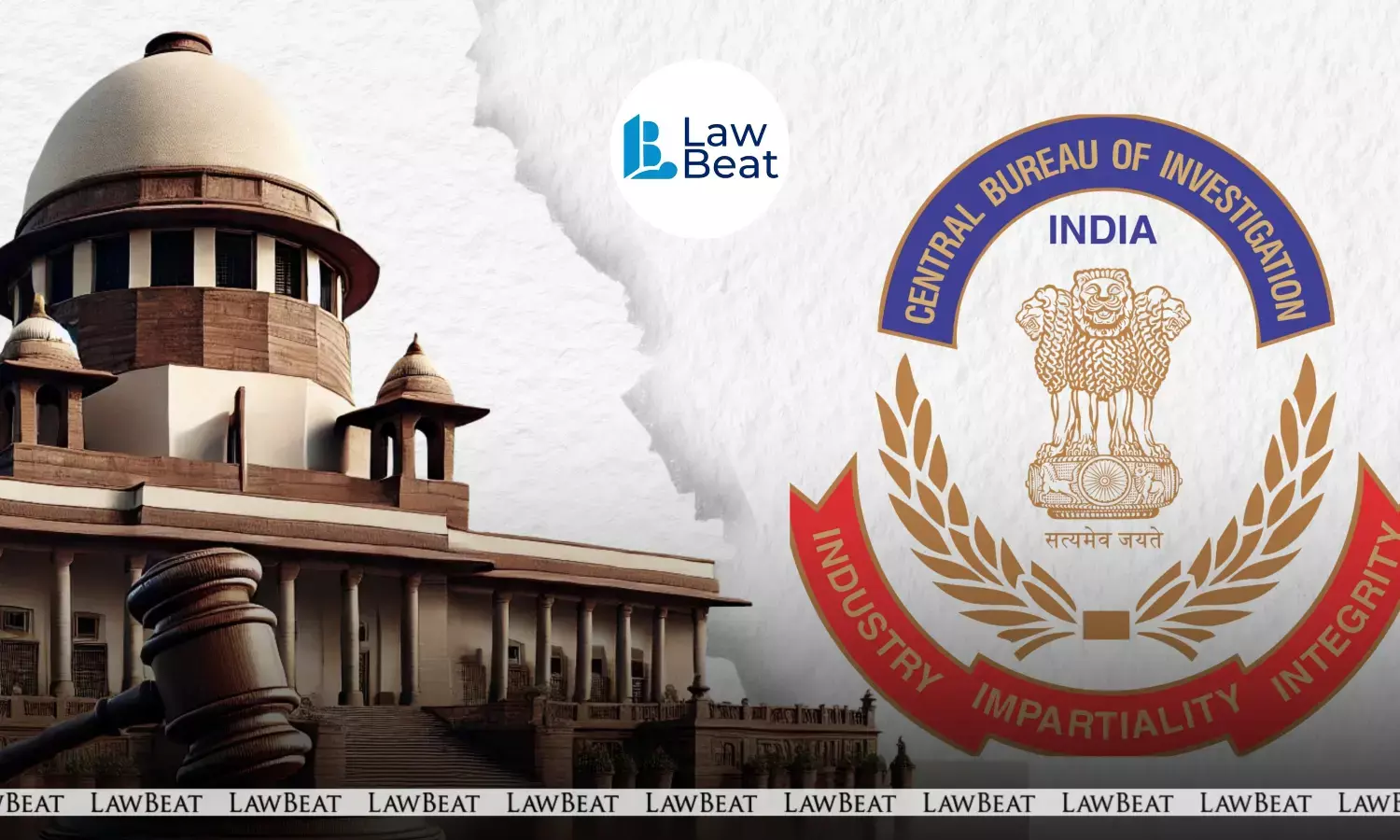SC Upholds FIRs Against Ex-CBI Officers, Says “Those Who Investigate Must Also Be Investigated”

Supreme Court upheld FIR’s against Neeraj Kumar, Vinod Pandey
The Supreme Court on Wednesday upheld the Delhi High Court’s direction to register FIRs against two former Central Bureau of Investigation (CBI) officers, Vinod Kumar Pandey and Neeraj Kumar, accused of irregularities and abuse of power during investigations in 2000. Modifying the manner of investigation, it directed Delhi Police, not its Special Cell, to complete the probe within three months.
A Bench of Justices Pankaj Mithal and Prasanna B. Varale observed, “It is high time that sometimes those who investigate must also be investigated to keep alive the faith of the public at large in the system. It would be dichotomy of justice if such an offence is allowed to go uninvestigated particularly when there is involvement of the officers on deputation to CBI. It is cardinal in law that justice must not only be done, but must also be seen to be done.”
Counsel for the appellants argued that the complaints filed by Sheesh Ram Saini and Vijay Aggarwal did not disclose cognizable offences under the Indian Penal Code.
It was submitted that the High Court erred in directing registration of FIRs despite a preliminary inquiry by the CBI which had concluded that no offences were made out.
They further contended that Neeraj Kumar, the then Joint Director of the CBI, had not been directly implicated and that at best the allegations were against Inspector Vinod Kumar Pandey. Objection was also raised to the direction entrusting the Special Cell, which ordinarily investigates terrorism cases, with the inquiry.
Opposing this, counsel for the respondents urged that the allegations related to coercion, intimidation, fabrication of records and wrongful seizure of documents could not be brushed aside. It was submitted that public servants cannot seek immunity under Section 197 of the Code of Criminal Procedure or Section 140 of the Delhi Police Act when accused of knowingly preparing false records or abusing official authority.
The respondents maintained that the High Court was justified in exercising jurisdiction under Article 226 of the Constitution and Section 482 CrPC once cognizable offences were prima facie made out.
The Supreme Court noted that though the appellants approached it after a gap of 12 years, the delay was explained by their bona fide pursuit of Letters Patent Appeals before the Delhi High Court, which were dismissed in 2019 on grounds of maintainability. Condoning the delay, the Bench held that both complaints clearly disclosed cognizable offences warranting investigation. It rejected impleadment of the CBI, stating that “it is the officers who are aggrieved in their personal capacity and not the institution to which they are on deputation.”
The Court examined the High Court’s reasoning, which had found irregularities substantiated by the CBI’s own inquiry report.
The Single Judge had noted that documents seized on April 26, 2000 were not supported by a seizure memo on that date but only the following day, attracting provisions of Sections 218, 463, 465, 469, 166 and 120-B IPC. Allegations that Vijay Aggarwal was summoned in derogation of a bail order and subjected to threats and vulgar language to withdraw a complaint were also found prima facie credible.
The Court cited Ramesh Kumari v. State (NCT of Delhi) (2006) 2 SCC 677, which held that availability of alternative remedies is no ground to refuse registration of an FIR when cognizable offences are disclosed. In Sakiri Vasu v. State of U.P. (2008) 2 SCC 409, it was reiterated that extraordinary jurisdiction under Article 226 or inherent powers under Section 482 CrPC may be exercised despite alternative remedies. Reliance was also placed on Lalita Kumari v. Government of Uttar Pradesh (2014) 2 SCC 1, affirming that registration of FIR is mandatory when information discloses a cognizable offence, with preliminary inquiry permissible only if the information does not clearly do so.
The Bench also referred to Pradeep Nirankarnath Sharma v. State of Gujarat (2025) 4 SCC 818, where it was held that abuse of official position and corrupt practices by public servants fall within cognizable offences, and that preliminary inquiry before FIR registration is not required.
In Anurag Bhatnagar v. State (NCT of Delhi) (2025 INSC 895), the Court had clarified that failure to exhaust alternative remedies was a procedural irregularity, not illegality, when a competent court ordered FIR registration.
The Court concluded that the High Court’s findings were only prima facie and would not bind the Investigating Officer. It directed Delhi Police to conduct the probe by an officer not below the rank of Assistant Commissioner of Police, allowing the CBI’s preliminary inquiry report to be considered but not treated as conclusive. The officers were directed to cooperate with the investigation, with protection that no coercive steps, including arrest, would be taken unless custodial interrogation was found necessary.
Disposing of two appeals and partly allowing two others, the Top Court reaffirmed that the process of law must apply equally to all, including those entrusted with enforcing it.
Brief Background
The controversy arose from writ petitions filed in 2001 by Vijay Aggarwal and Sheesh Ram Saini.
Aggarwal alleged that he was unlawfully summoned and threatened by Inspector Pandey to withdraw his brother’s complaint against Neeraj Kumar, then Joint Director of CBI.
Saini’s petition highlighted irregular seizure of documents without proper memo.
On June 26, 2006, a Single Judge of the Delhi High Court directed registration of FIRs, holding that prima facie cognizable offences were disclosed.
Appeals were dismissed in 2019, leading to the present challenge before the Top Court.
Case Title: Vinod Kumar Pandey & Anr. v. Seesh Ram Saini & Ors. with connected matters
Date of Judgment: September 10, 2025
Bench: Justices Pankaj Mithal and Prasanna B. Varale
